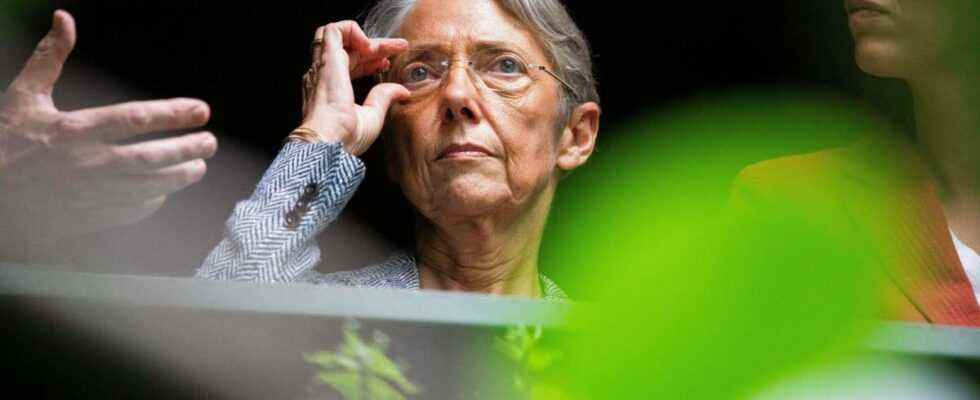Has Elisabeth Borne sparked a new controversy? A few hours after a very commented answer to a disabled woman deprived of allowances, her declaration on the fact that the State does not earn money with taxes on fuels aroused many reactions. However, the Prime Minister is telling the truth.
I can assure you that today the state does not make money on fuel taxes
Elisabeth Borne, Wednesday evening, in Vire (Calvados)
Taxes yes, but mostly fixed
The prices of road fuels sold in France rose again last week, with petrol rising above 2 euros per litre, shortly after the decision on a partial embargo by the European Union on Russian oil.
In concrete terms, the price of fuels is made up of the price of oil and its related costs (particularly refining), transportation and distribution costs, and taxes.
Among them, the TICPE (domestic consumption tax on energy products, ex-TIPP) is fixed: whatever the price of fuel at the pump, the TICPE amounts to approximately 60 cents per liter of diesel and 69 per liter gasoline. Some differences exist depending on the region (Ile-de-France, Corsica, other regions).
Fixed, which implies that the variation in oil prices such as fuel sold at the pump has no impact on what it brings to the State.
This is not the case for VAT (value added tax). And for fuel, there are two VATs: the first is fixed, since it applies… to the TICPE, up to 12 to 14 cents per litre, depending on the fuel. The second, VAT “on product” at the rate of 20%, applies to the price of oil alone and varies according to its price.
The State loses money with each fill-up
As the Energies et Mobilités (ex-Ufip) site explains, on a liter of SP-95 at 2.10 euros, this represents a little more than 20 cents when oil costs around one euro per liter of fuel.
> Click on the image to see it in full
Compared to the start of the year, the price of a liter of SP-95 has risen from around €1.65 to €2.10, with oil rising from $80 to $120 a barrel. On these sums, the State has garnered a surplus of VAT estimated at 6 or 7 centimes per litre.
But with the discount of 15 to 18 cents per liter granted to motorists in the current context, not only does the State not earn more money… but it loses it, with each fill-up.
